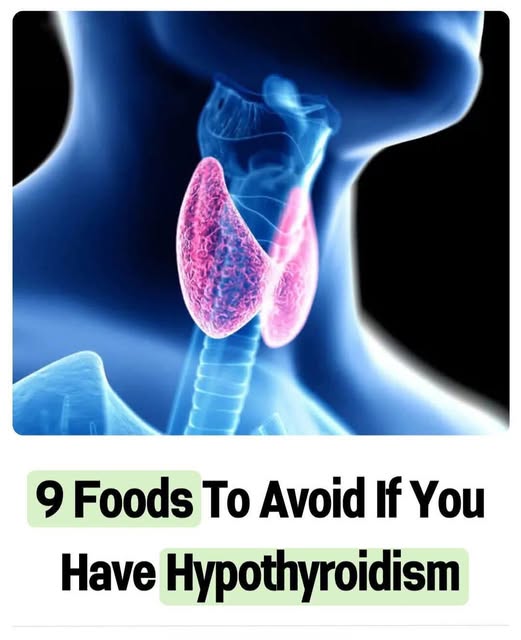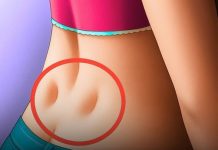Managing hypothyroidism can be challenging. While medication is essential to keep hormone levels in balance, diet also plays a key role in how well your body absorbs medication and maintains healthy thyroid function. Although there’s no one-size-fits-all “hypothyroidism diet,” experts agree that certain foods may interfere with treatment or worsen symptoms.
Here’s a breakdown of nine foods you should limit or avoid — and smart alternatives that support thyroid health.
1. Soy-Based Foods
Why it matters: Soy contains compounds called isoflavones, which may interfere with the absorption of iodine — an essential mineral for proper thyroid function. Additionally, soy can hinder how your body absorbs thyroid medications if consumed too close to your dosage.
Examples to watch for: Tofu, soy milk, soybeans (edamame), soy protein powders.
Better choices: Consider switching to lentils, chickpeas, or beans as plant-based protein options. If you eat soy, make sure to wait at least 4 hours after taking your thyroid meds.
2. Cruciferous Vegetables
Why it matters: Raw cruciferous vegetables like broccoli and cauliflower contain goitrogens — substances that can reduce your thyroid’s ability to use iodine.
Examples to limit: Raw broccoli, cabbage, Brussels sprouts, kale.
Tip: Cook these veggies before eating. Heat breaks down many of the goitrogens, making them safer in moderation.

3. Gluten
Why it matters: People with hypothyroidism, especially those with Hashimoto’s thyroiditis, may also have celiac disease or gluten sensitivity. Gluten can trigger inflammation and make it harder for your body to absorb thyroid hormone replacement.
Foods to avoid: White bread, pasta, baked goods, cereals made from wheat, barley, or rye.
Healthier swaps: Try gluten-free grains like rice, quinoa, or certified gluten-free oats. Talk to your doctor about testing for gluten sensitivity if you suspect a reaction.
4. Processed Foods
Why it matters: Processed foods often contain excessive sodium, which can worsen the risk of high blood pressure — a common issue among people with hypothyroidism.
Examples include: Frozen meals, fast food, salty snacks, instant noodles.
What to eat instead: Choose whole, unprocessed foods such as fresh vegetables, fruits, lean proteins, and whole grains.
5. Sugary Treats
Why it matters: Hypothyroidism slows down your metabolism, making it easier to gain weight. Excess sugar contributes to blood sugar imbalances and energy crashes.
Common culprits: Soda, pastries, candies, and sugary cereals.
Smart swaps: Snack on fresh fruits like berries or apples. For sweeteners, use natural alternatives like honey or maple syrup in small amounts.
6. High-Fat Foods
Why it matters: Diets high in saturated fat can impact your body’s ability to absorb thyroid medication and may suppress thyroid hormone production.
Foods to cut back on: Fried foods, fatty meats, butter, margarine, cream-based sauces.
Healthier fats: Switch to olive oil, avocado oil, and eat more lean proteins like chicken, turkey, or fish.
7. Coffee
Why it matters: Coffee is a morning must-have for many, but drinking it too soon after taking your thyroid medication can block absorption.
Tip: Take your thyroid meds with a full glass of water and wait at least 30–60 minutes before drinking coffee.
8. Alcohol
Why it matters: Alcohol can interfere with thyroid hormone production and disrupt hormone levels, making symptoms worse over time.
What to do: Limit alcohol consumption or consider avoiding it entirely. Water, herbal teas, or non-caffeinated beverages are better choices.

9. Certain Fruits and Nuts
Why it matters: Some fruits and nuts are also mildly goitrogenic, which means they can affect how your thyroid uses iodine.
Foods to watch: Peaches, strawberries, pears, almonds, and walnuts.
Better options: Choose antioxidant-rich fruits like blueberries, cherries, and pomegranate. Enjoy nuts in moderation, or opt for Brazil nuts, which are high in selenium — a mineral that supports thyroid health.
Final Tips for Managing Hypothyroidism
A thyroid-friendly diet isn’t about restriction — it’s about balance and awareness. In addition to avoiding trigger foods, focus on eating more of the nutrients your thyroid needs, such as:
- Selenium (Brazil nuts, eggs, tuna)
- Zinc (lean meats, shellfish, pumpkin seeds)
- Iodine (seaweed, dairy, iodized salt — but not in excess)
Conclusion
Always consult with your healthcare provider or a registered dietitian before making major dietary changes, especially if you’re on thyroid medication.

















